How they were treated in Russia
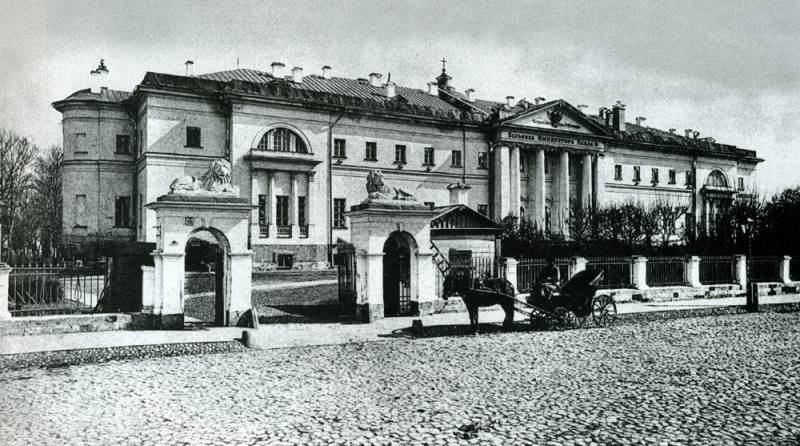
Pavlovsk hospital. Architect Matvey Kazakov
From pagan Rus' to Ivan the Terrible
Since ancient times, people have been treated by wise men, sorcerers and their successors - healers and healers. They used traditional medicine based on medicinal plants and word magic (spells). Doctors passed on their knowledge from generation to generation. They registered in medical clinics (herbalists).
Bathhouse, hardening and hygiene played a special role in traditional Slavic treatment. Therefore, the Slavic-Russians, unlike the Europeans, where they forgot about hygiene during the “Dark Ages” and experienced healers and herbalists were sent to the stake, were a healthier people and more advanced in the art of healing.
After the adoption of Christianity, monasteries gradually became centers of medical knowledge, where the sick were cared for and the prototypes of modern hospitals appeared. Medicinal plants were grown in the monastery gardens, collected, and made infusions and decoctions. At the same time, traditional medicine was preserved. From Byzantium, where part of the ancient scientific heritage was preserved, this knowledge came to Rus'.
From about the XNUMXth century, noble and wealthy people in Russian cities began to use the services of foreign doctors, who flocked to Rus' in search of high earnings. In Western Europe during this period, the traditions of ancient science were revived. Medical faculties are appearing at universities. True, there were also plenty of charlatans in Europe. At the same time, medicine, concentrated in monasteries, is degrading in Rus'. Religion began to conflict with science, knowledge is replaced by prayer and humility.
True, the services of foreign doctors were used only by a limited circle of nobility, wealthy merchants. The people maintained the tradition. Doctors treated based on experience and proven herbs. The doctor and the pharmacist-pharmacist were one person (in Europe, the division into doctors and pharmacists had already occurred). The Venetian Marco Voscureno, who visited Moscow in 1557, wrote that the Russians
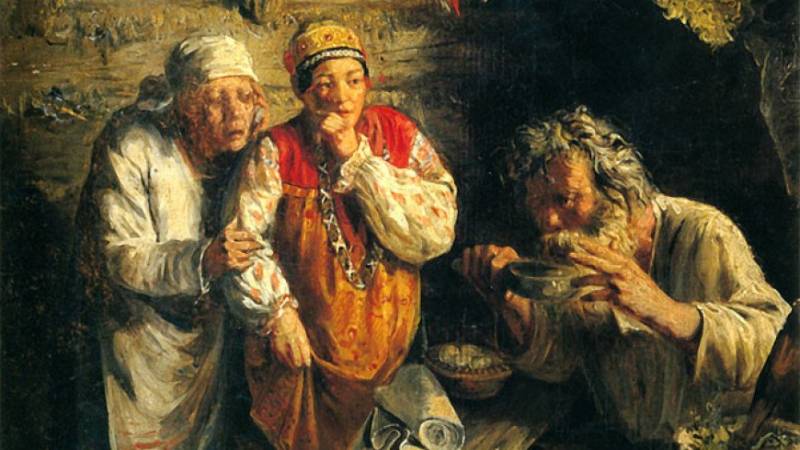
"Witch Doctor" Painting by G. Myasoedov
Pharmaceutical order
Under Ivan IV the Terrible, the Sovereign's Pharmacy was created, where medicines were prepared for the royal family. Under his successor Fyodor or Boris Godunov, the Pharmacy Order was created. It was headed by Semyon Nikitich Godunov, Boris’s second cousin—as people said, his “right ear.” Doctors of the Pharmacy Prikaz received an estate and, in terms of their position, were equated to okolnichy (court rank and position).
The order occupied a stone building opposite the Chudov Monastery. The head of the order was in charge of the palace and military medical services, personnel and pharmacy. Foreign doctors since the XNUMXth century. began to be invited not only to serve at court and to serve the nobility, but also as regimental doctors (in the army). Pharmacies were established in a number of cities; from their warehouses, transports with medicines arrived at the shelves. Interestingly, one of the main sources of financing for the Pharmacy Order was the procurement and sale of vodka, wine, beer and honey.
The Sovereign's Pharmacy and the New Pharmacy, opened in 1672 in Kitai-Gorod, had a monopoly on the trade in medicines. At first, most medications were prescribed from Europe and cost a lot of money at that time. Under Tsar Alexei Mikhailovich, a system for procuring medicinal herbs was established. Specially trained herbalists did this. There was even a state “berry duty”.
Since 1654, under the order, the Medicine School began operating, in which the children of archers, clerks and clergy studied for 5-7 years. One of the teachers of the school was the learned monk Epiphanius Slavinetsky, who arrived from the Kiev-Mohyla Academy. He translated into Russian the anatomical work of the founder of scientific anatomy, Andreas Vesalius, Epitome. The disciples took a kind of oath:
They studied the Latin language, anatomy, medicinal plants, read “doctor's tales” (as they called stories diseases) and practiced in regimental hospitals.
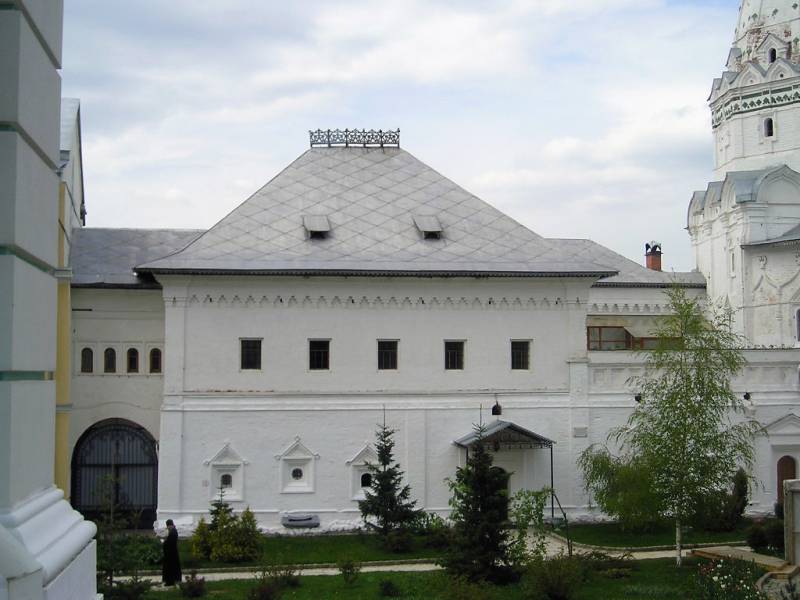
Hospital wards of the Trinity-Sergius Lavra (1630s)
First hospital
The first state medical institution appeared under Tsar Peter I - it was a military hospital (from the Latin hospitalis - “hospitable”, “welcoming”). On May 25 (June 5), 1706, a decree was issued
A year and a half after the decree was announced, a hospital with 300 beds was built. On November 21 (December 2), 1707, the sign “Military Hospital” appeared on its pediment. It was named the Moscow General Land Hospital. The founder of the hospital (and the first medical school in the Russian state) was Nikolai Bidloo, a Dutch doctor who was the Tsar’s personal physician. The hospital was not only a medical institution (“for the treatment of sick people”), but also an educational institution (“for pharmaceutical science”), for training doctors, mainly for the army and fleet.
Lefortovo Hospital remained one of the leading military medical institutions in Tsarist and Soviet Russia. During the Patriotic War of 1812, it admitted over 17 thousand wounded and sick, during the Russian-Japanese Won - 55 thousand, during the First World War - more than 370 thousand. During the Great Patriotic War, the hospital in Lefortovo specialized only in the most complex cases , and 74 thousand patients passed through it. The doctors literally worked miracles: 8 out of 10 seriously wounded returned to duty after treatment! Over two hundred years, almost 4 million people were treated in the hospital. In 1946, the hospital was named after Academician N. N. Burdenko. Nowadays it is the Main Military Clinical Hospital named after N. N. Burdenko.
In 1718-1720 The first hospitals were opened in St. Petersburg and Kronstadt. They also formed schools. Under Tsar Peter, the first private (“free”) pharmacies appeared.
In 1707, the Apothecary Office was established in St. Petersburg, initially operating in parallel with the Apothecary Order. In 1714-1716. the department was subordinated to the archiate (from Greek “chief physician”), the first royal physician. The first archbishop was the Scotsman Robert Areskin, who was at the same time appointed president of the Apothecary Chancellery and the Apothecary Order.
In 1721, the Pharmacy Order was transformed into the Medical Office, which supervised all hospitals, their schools, pharmacies, was in charge of all doctors, and took measures to combat infectious diseases.
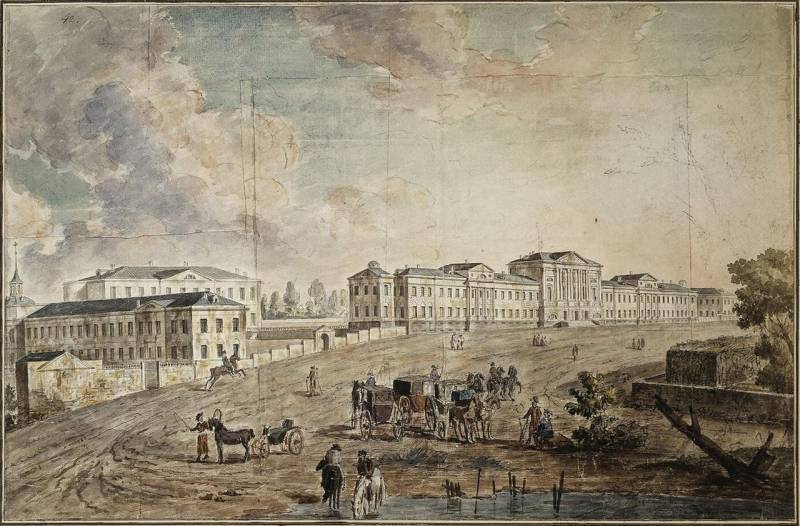
Military hospital in Lefortovo, early XNUMXth century. Artist F. Alekseev
First public hospital
In 1762, Empress Catherine II and her heir Pavel Petrovich arrived in Moscow. Suddenly he became seriously ill, and the best doctors were called in for treatment. Everything worked out well, and in memory of the rescue of the Tsarevich, a decree was issued to open a hospital for the poor in Moscow. Therefore, the hospital began to be called Pavlovskaya. To preserve the memory of this event, a medal was minted with the image of the Tsarevich and the inscription:
The estate of the Prosecutor General of the Government Senate, General A. Glebov, who at that time fell into disgrace due to bribery, was chosen as the site for construction. The hospital was officially opened on September 14 (25), 1763.
The hospital was free and intended to treat the poor and disadvantaged; it was financed from the personal funds of Tsarevich Pavel Petrovich. After his death, the hospital came under the care of his wife, the Dowager Empress Maria Feodorovna, who generously financed the hospital. At first, the hospital had only 25 beds, but already in 1766 a large building and two outbuildings for employees were built. After the fire of 1784, the architect Kazakov in 1803 built a new stone building of the Pavlovsk hospital. In 1830, the architect D. Gilardi additionally built two stone outbuildings and two buildings for staff.
In 1904, by decree of Emperor Nicholas II, training courses for orderlies were organized at the hospital, which marked the beginning of teaching activities. To this day, Pavlovsk Hospital is the largest medical and scientific center in Russia.
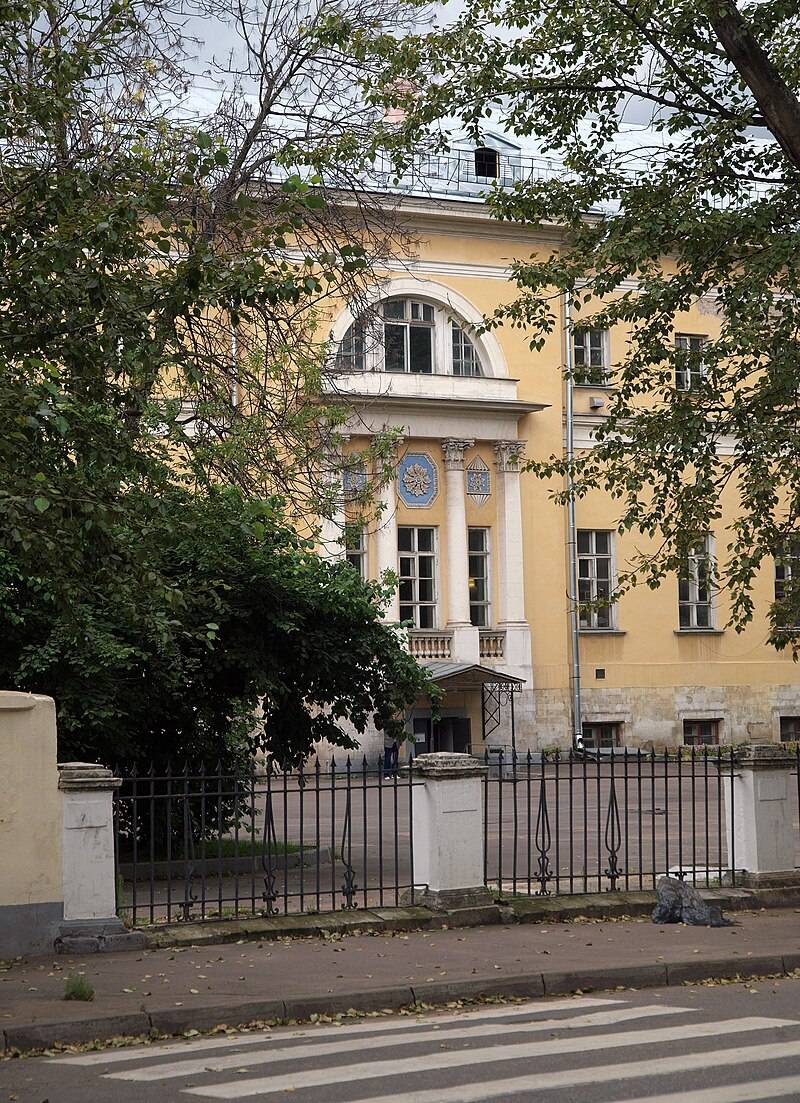
Information